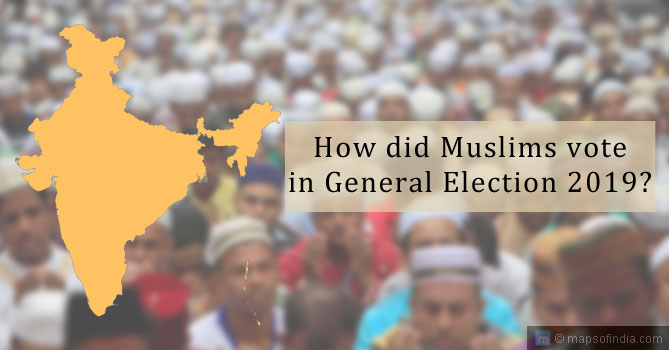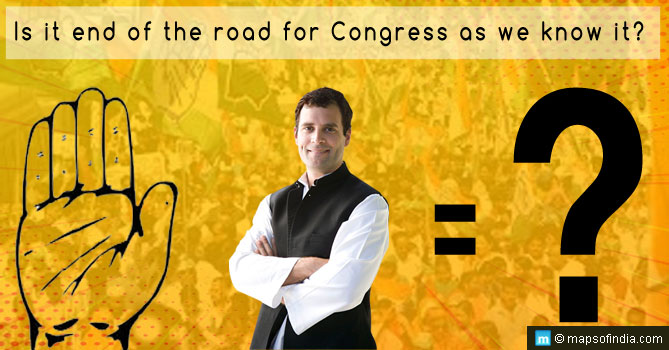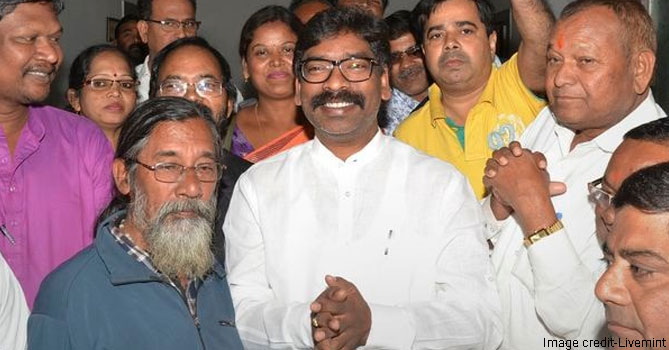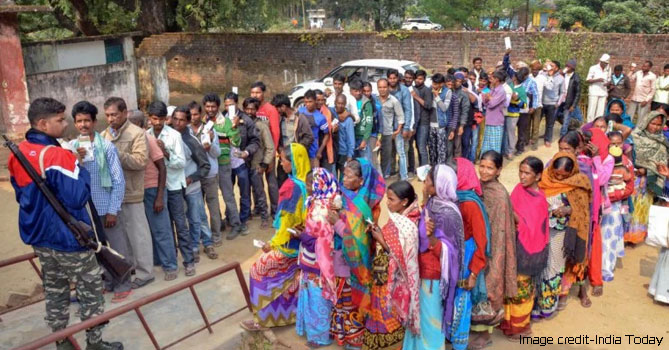
In the context of Muslim voters and Muslim representation in Parliament, the 2019 general election results have revealed the following:
Muslim voters do not vote together as a vote bank
The general perception that Muslim voters vote collectively for one candidate or party stands disproved. Over the years, voting trends in areas with concentrated Muslims show no specific trends towards a single party. It was evident in 2014 and 2019. Same is true for Muslim women voters. There are no clear indicators they vote along the same lines as men, contrary to popular perception.
Areas with over 40% Muslim voters have voted for the BJP
The first signs of changing voting patterns became visible in 2014 and got consolidated in 2019. A massive mandate was given to the BJP in states with a high percentage of Muslim voters, as seen in Uttar Pradesh and West Bengal.
In U.P, BJP won 62 of the 80 seats with a vote share of 49.6 percent. Many constituencies have a high percentage of Muslim voters (40% and above). BJP won 5 seats in these constituencies fielding non-Muslim candidates.
Muzzafarnagar witnessed communal riots leaving voters polarized along communal lines. The seat was won by Sanjeev Kumar Balyan (BJP) polling 5,73,780 votes, representing a 49.46 percent vote share.
Ajit Singh (RLD), a Jat leader, received an equally large share of votes – 5,67,254 votes representing 48.9 percent vote share. Most votes won by RLD were predominantly Jat votes, many of who were upset with the BJP.
The remaining Hindu, non-Hindu non-Muslim, and Muslim votes, went mostly to the BJP. Post-riots, a large section of the Muslim voters were expected to vote against the BJP but that didn’t happen.
In West Bengal’s Maldaha Uttar, a predominantly Muslim majority area, Khagen Murmu (BJP) won the seat polling 5,09,524 votes representing 37.61 percent vote share. He beat Isha Khan Choudhury (TMC) who received 3,05,270 votes representing a 22.53 percent vote share. Here was a non-Muslim candidate from BJP defeating a Muslim candidate from TMC in a predominantly Muslim constituency. In Bengal, several constituencies displayed similar trends of Muslims voting for the BJP.
Hindu votes consolidated nationally; Muslims votes favoured the BJP in many constituencies
Pre-2009, BJP could not get the advantage of securing majority Hindu votes, as they were fragmented along caste lines. Since 2009, the party made a conscious attempt at taking a harder pro-Hindutva line in an attempt to polarize, and thereby consolidate the Hindu votes. It worked in some areas and gave the party confidence to pursue the same in 2014.
The 2014 elections were fought by the BJP on two strategies – anti-corruption against the UPA II and stringent pro-Hindutva message. The move brought rich dividends for the BJP. Before the results were announced, the expectation was the Muslims would vote against the BJP. The post-result analysis revealed large sections of Muslim voters, spread across Muslim dominated constituencies, favoured the BJP.
The trend was again visible in 2019. That is why the party leaders kept making polarizing statements throughout the campaign. At the ground level, however, the party workers assured the Muslims of security and development if the BJP came to power once again. This was further confirmed in PM Modi’s first speech after winning the elections. He emphasized that minorities need not live in fear and that development will reach everyone.
BJP did not field any Muslim candidate in 2019
In 2014, the BJP fielded six Muslims candidates – 3 in Kashmir, 2 in West Bengal, and one in Lakshadweep. All six lost the elections.
In 2019, the party chose not to field any Muslim candidate and took a gamble of banking on the consolidation of Hindu votes. All this while convincing sections of Muslim voters to vote for the party, as they did in 2014. The massive mandate shows the strategy worked, and Muslim voters voted for Hindu candidates in large numbers.
The 27 Muslims elected to Parliament came from non-BJP parties
It’s a fact the Muslim representation in Parliament has been declining and is not proportionate to the population. In 2019, 27 Muslim candidates shall enter the Parliament, four more than in 2014. All the 27 Muslim MPs forming part of the 17th Lok Sabha come from non-BJP parties. 12 of the 27 MPs are from U.P and West Bengal.
Related Link:
Lok Sabha Election Results 2019





